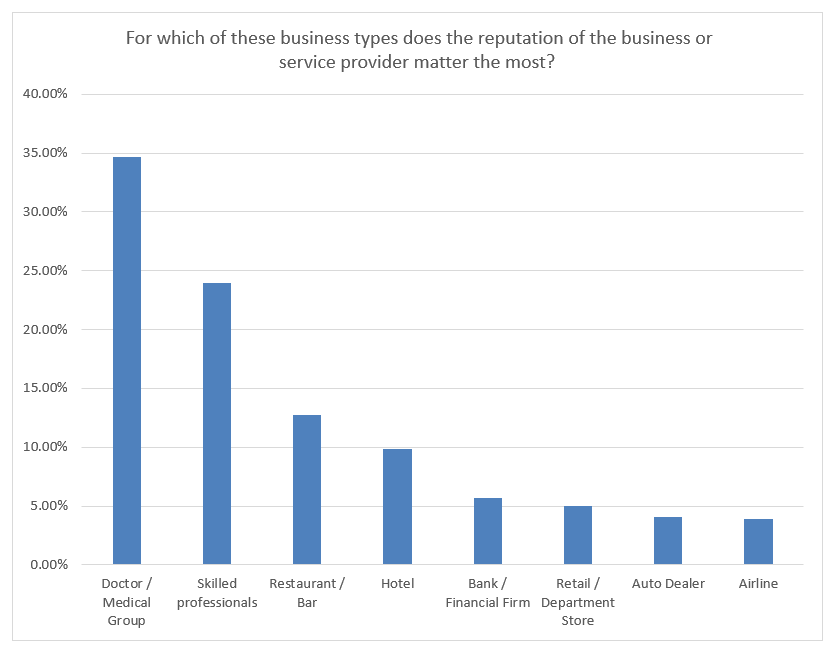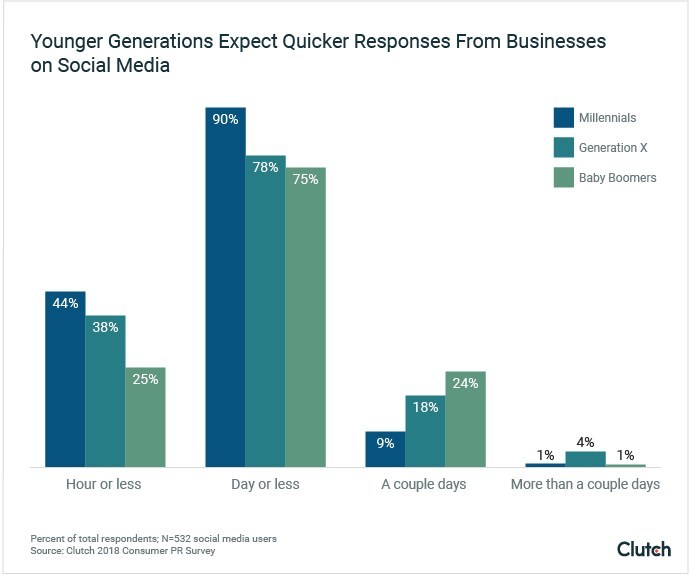The healthcare industry is witnessing the transformation as we speak. Whether it be personalized medicines, revamped payment methods, or disruptive innovation, the healthcare sector, like all other sectors, is poised for a change.
A critical element of reputation management is monitoring and managing online reviews.
Online reviews matter a lot in today’s age. According to Brightlocal, 91 percent of millennials trust online reviews as much as they trust their friends. Similarly, Statuslabs revealed that 83 percent of consumers don’t believe advertisements.
But, you might wonder, as a healthcare institution, why should you care about online reviews? After all, this industry and service are much more technical than other sectors, right? While this is true, it doesn’t take away from the fact that online reviews are important. Here is why.
Patients rely on reviews to guide their healthcare decisions
NRC Health researched to gauge just how important online reviews are for patients. It is a known fact that the masses are influenced by what other people say. According to a research conducted by NRC health, Over 92.4 percent of consumers use online reviews to guide their everyday purchases.

But, healthcare decisions aren’t the same as your everyday purchases, right? Well, according to this study, the effect of online reviews on purchase decisions has now led to an effect on the healthcare sector too.
Over 34.7 percent of patients find the online reputation of the doctor and healthcare institution they opt for to be immensely valuable. And this figure is visibly higher than in any other sector. Moreover, almost 60 percent of patients select doctors based on positive online reviews. And 61 percent avoid healthcare services that have negative reviews as per NRC health.
In short, patients put a lot of emphasis on online reviews when deciding which doctor and institute to opt for. As a healthcare provider, this means that your healthcare reputation management team must monitor and manage online reviews.
Better communication between physicians and patients
Online reviews help improve communication between physicians and patients. And many healthcare providers believe this to be true as well. For instance, in 2012, Utah witnessed the first-ever time a provider put patient reviews online.
An academic medical center by the name of Utah Health Care published unedited and raw reviews of patients online as well as started a ranking system. Another radiologist wrote extensively about the role of online reviews on patient-provider communication.
According to him, online reviews don’t just act as a way for people to gauge the quality of a given healthcare institute. Instead, it also acts as a guide for physicians.
By looking at negative reviews, you can see where your practice is going wrong. You can then make an effort to improve your services. Before the rise of online reviews, information used to flow one-way, from the healthcare provider to the patient. Now, it can flow both ways.
Since online reviews help bridge the previously present communication gap, patients are more likely to be satisfied with the quality of care they receive. Such satisfied patients may then leave positive reviews, thereby ensuring a chain reaction.
An Academic Medicine research paper has also discovered that boost in satisfaction with services can yield positive health outcomes in customers. Similarly, the more satisfied the patients are, the lesser are the chances of malpractice litigation.
And all of this can stem from positive online reviews. Hence, its importance in the world of healthcare cannot be understated.
How to manage online reviews
Now that you know that online reviews are immensely important for any healthcare institution, the next step is to understand how to manage online reviews.
When managing your online reputation by monitoring and replying to online reviews, take care of the following things:
- Make sure your responses are HIPAA Compliant
Responding to online reviews is slightly technical if you are a healthcare institute. You need to go the extra mile to ensure that whatever you say is HIPAA compliant.
For instance, you can’t disclose confidential patient information in your reply. This even holds in the case that the patient itself has disclosed their information as part of their review. The best way to reply to online reviews that seek help is by offering help offline. Do so by leaving your phone number or email.
- Be quick with your replies
The online world is fast-paced. What might be deemed as an appropriate time frame in the real world might be termed too late in the online world? Over 90 percent of millennial's expect a brand to reply online within 24 hours or less!

Moreover, if the concerned review is negative, there is even more urgency for you to reply at the quickest. After all, you wouldn’t want the negative image of your institution to spread.
- Keep up with negative and positive reviews
A common mistake many healthcare providers make is to focus on only the negative reviews. While it is essential to resolve the pain points of such reviews, it is equally vital to reply to positive reviews with gratitude.
Remember, a satisfied patient is likely to refer your healthcare service to their friends or family. Similarly, when online users see that you have replied positively to your patients, it will send the right image across. So, make sure to always keep up with both negative as well as positive reviews.
Bottom Line: Care about your online reviews
As a healthcare institute, you need to pay heed to what your patients are saying about you. Whether or not new customers will come your way or if your old patients will stick by you depends on what people are saying about you online.
Manage your online reviews closely. Address negative reviews with an apology and solution. Show gratitude to your satisfied patients. Healthcare is now more than just about the services you provide. It is about the reputation you have!
About the Author:
The SEO-Alien is a project started in 2009 regarding all things online marketing. The site started out more of a diary of predictions, suggestions and references to things I frequently used for online marketing... before social media marketing was even an option.
I hope you find the information and tools presented here useful and something worth sharing with others.
If there is anything else about online marketing or any online advertising strategy you think would be helpful, please let me know.



